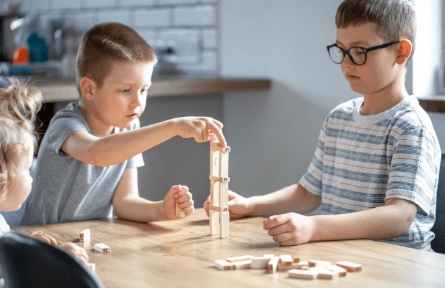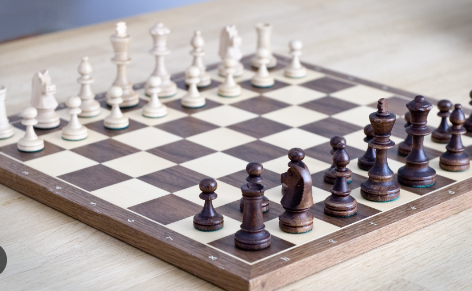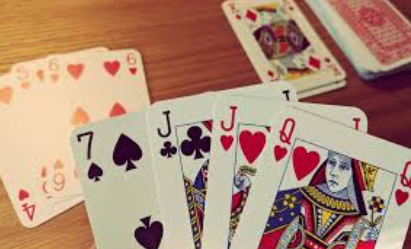
Games are more than just a source of entertainment; they are powerful tools for developing essential life skills, including problem-solving. Integrating games into learning can create an engaging environment where children naturally build critical thinking and decision-making abilities. Problem-solving games help kids approach challenges with creativity, patience, and persistence, all vital skills for their future academic and personal lives.
In this post, we’ll dive into how games can effectively teach problem-solving skills, explore some of the best games for this purpose, and provide tips on integrating them into daily learning.
Why Use Games to Teach Problem-Solving Skills?
Games are an excellent way to teach problem-solving because they:
- Encourage Critical Thinking: Games require players to analyze situations, consider different options, and make decisions.
- Promote Teamwork and Communication: Many games involve collaboration, which fosters communication skills and teamwork.
- Build Patience and Perseverance: Games often involve failure, which teaches children to persevere and try different strategies.
- Boost Confidence: Successfully solving problems in games can build self-esteem and encourage kids to take on more complex challenges.
Top Games for Teaching Problem-Solving Skills
1. Strategy Board Games:

Board games like Chess, Checkers, and Go are perfect for teaching strategic thinking and problem-solving. These games require players to anticipate their opponent’s moves, plan multiple steps ahead, and adjust strategies based on changing circumstances.
Why It Works: These games enhance cognitive skills such as memory, concentration, and logical reasoning. They also teach children to think critically and make calculated decisions under pressure.
Tip: Set aside a weekly family game night dedicated to strategy games. Encourage your child to explain their thought process during gameplay to reinforce their decision-making skills.
2. Puzzle and Logic Games:
Games like Sudoku, Crosswords, and Jigsaw Puzzles are excellent for developing analytical thinking. They challenge kids to recognize patterns, solve complex problems, and think logically.
Why It Works: These games improve concentration, pattern recognition, and spatial reasoning, which are essential components of problem-solving.
Tip: Incorporate daily puzzle time into your child’s routine. Start with simpler puzzles and gradually increase the difficulty to keep them engaged and challenged.
3. Digital Problem-Solving Games:
Educational apps and video games like Minecraft, Portal, and The Legend of Zelda offer immersive problem-solving experiences. These games require players to solve puzzles, build structures, and navigate complex environments using limited resources.
Why It Works: Digital games provide real-time feedback and rewards, encouraging children to experiment with different approaches and learn from their mistakes. They also enhance spatial awareness, creativity, and critical thinking.
Tip: Set time limits for digital gaming sessions and encourage your child to reflect on the strategies they used to overcome challenges.
4. Cooperative Games:
Games like Pandemic, Forbidden Island, and Escape Room games require players to work together to achieve a common goal. These games emphasize collaboration, communication, and shared problem-solving.
Why It Works: Cooperative games teach children the importance of teamwork and how to communicate effectively with others to solve complex problems. They also foster empathy and emotional intelligence.
Tip: Use cooperative games to strengthen family bonds. Discuss what worked well and what didn’t after each game to highlight key lessons in teamwork and strategy.
5. Outdoor Games and Challenges:
Games like Treasure Hunts, Obstacle Courses, and Capture the Flag are fantastic for promoting physical activity while enhancing problem-solving skills. These games require children to think on their feet, adapt to new situations, and solve problems quickly.
Why It Works: Outdoor games combine physical and mental challenges, teaching children to stay calm under pressure and think strategically. They also promote healthy competition and resilience.
Tip: Create your own backyard obstacle course or treasure hunt with clues that require logical thinking and teamwork to solve.
6. Card Games:

Games like Uno, Go Fish, and Crazy Eights help children practice strategy, memory, and concentration. Card games often involve predicting opponents’ moves and adapting strategies accordingly.
Why It Works: Card games improve memory, attention to detail, and strategic planning, all of which are critical problem-solving skills.
Tip: Make card games a part of family bonding time. Encourage your child to think ahead and anticipate potential outcomes.
How to Integrate Games into Daily Learning:
- Set a Schedule for Game-Based Learning: Dedicate a specific time each week for family game sessions. Rotate between different types of games to keep it interesting.
- Discuss and Reflect: After each game, have a discussion about what strategies were used, what worked, and what could be improved. This reflection reinforces learning and encourages critical thinking.
- Use Games as Rewards: Incorporate games as a reward for completing other educational tasks or chores. This can make learning feel more enjoyable and less like a chore.
- Combine Digital and Physical Games: Balance screen time with physical and board games to develop a wide range of problem-solving skills.
- Encourage Group Play: Invite friends or family members to join in. Group play can provide new perspectives and ideas, enhancing collaborative problem-solving skills.
Conclusion: Transform Learning Through Play
Using games to teach problem-solving skills is a fun and effective way to prepare children for life’s challenges. Games provide a safe environment for children to experiment, make mistakes, and learn from them—an invaluable part of growing up. By incorporating a variety of games into your child’s routine, you’ll not only enhance their cognitive abilities but also build their confidence, resilience, and ability to work as part of a team.
Ready to level up your child’s problem-solving skills? Start by playing one of the recommended games today!
Don’t miss more creative ideas and strategies to boost your child’s learning journey! Subscribe to our blog for regular updates and resources.









